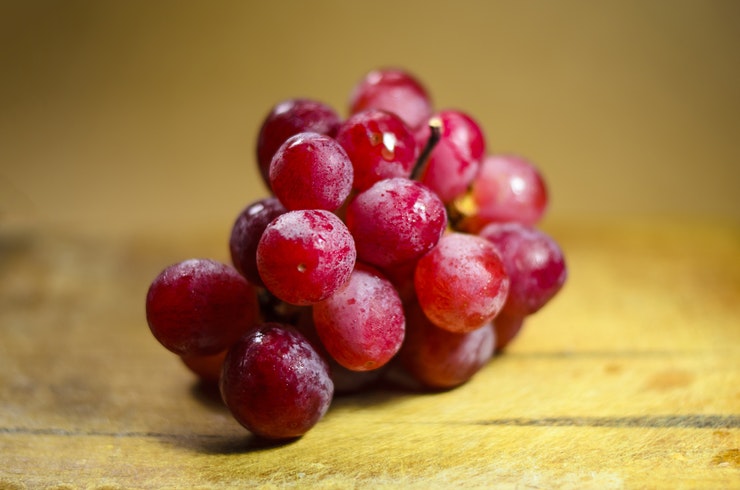
Sponsored Links
It’s important to keep your liver in good shape because it does so many different jobs for the body. It produces proteins and bile, plus stores vitamins, minerals, and carbohydrates. It is also the organ that breaks down toxins like alcohol and medication. It is definitely not an organ that you can live without, but it is so amazing that you can survive with just a portion of one. Still, it’s much better to protect the health of this vital bodily workhorse, and it starts with food. Following are the top foods that your liver loves.
1. Coffee
Good news – coffee is great for promoting liver health. And not only does it help prevent liver damage, studies have revealed that it can lower the risk of cirrhosis in folks who already suffer from chronic liver disease. It can minimize inflammation, increases antioxidant levels, and may even reduce the risk of liver cancer.
The benefits are greatest in people who drink at least three cups of joe per day, so that Starbucks habit you thought was scary is actually a good thing (for your liver, not your wallet).
2. Tea
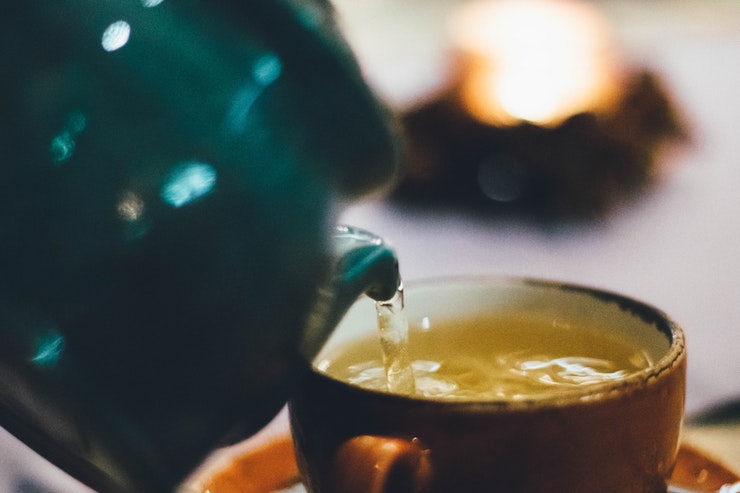
If you’re not a coffee lover, you’ll be glad to hear that tea is also quite beneficial for liver health. Many studies have pointed to the positive effects of green tea in patients suffering from non-alcoholic fatty liver disease in improving liver enzyme levels and reducing oxidative stress and fat deposits.
The catch is that you have to drink 5-10 cups per day! Don’t worry though, just four cups per day is enough to lower your risk of liver cancer. And if you don’t like green tea, black tea is also helpful in reducing the effects of a fatty diet on the liver.
3. Grapefruit
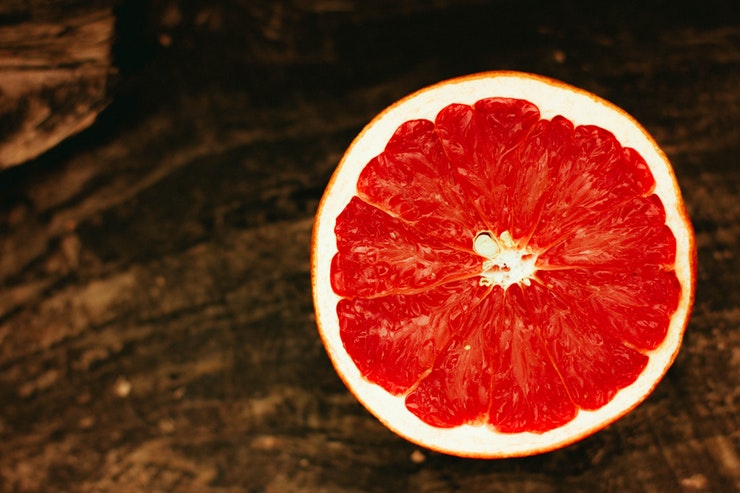
Eating grapefruit is a great way to nurture your liver because it contains powerful antioxidants that reduce inflammation and protect cells. The two main antioxidants in grapefruit, naringenin and naringin, may lower your risk of developing hepatic fibrosis, a dangerous condition where excess connective tissue builds up in the liver due to chronic inflammation.
Naringin in particular is also good for improving the liver’s ability to both metabolize alcohol and counteract some of alcohol’s damaging effects. So now you know what to eat for breakfast the morning before a bender.
4. Blueberries
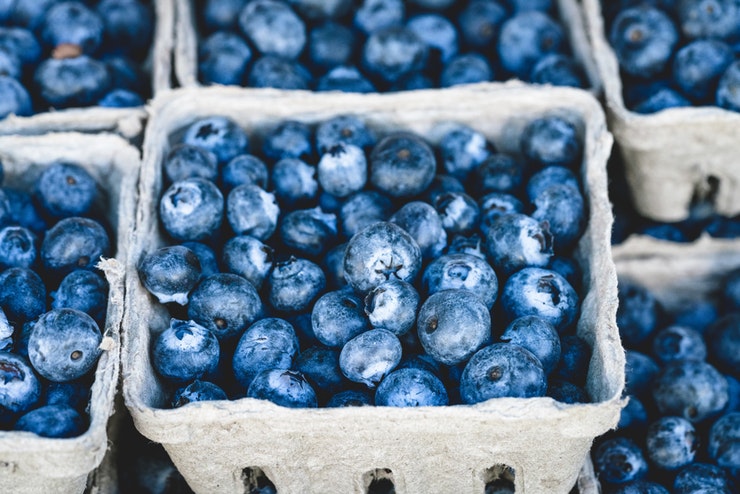
Blueberries are liver-boosting foods because they contain anthocyanins, which are the antioxidants that give them their distinctive blue color. Multiple studies in animals have shown that the liver benefits from a diet high in whole blueberries and/or their extract or juice.
Sponsored Links
Just 3-4 weeks of daily consumption of blueberries helped to increase immune cell response and antioxidant enzymes, and it slowed the growth of scar tissue, lesions, and fibroids in the livers of rats. In humans, blueberry extract has been seen to hold back the growth of liver cancer. More studies are necessary, but there is absolutely no downside to eating more blueberries!
5. Grapes
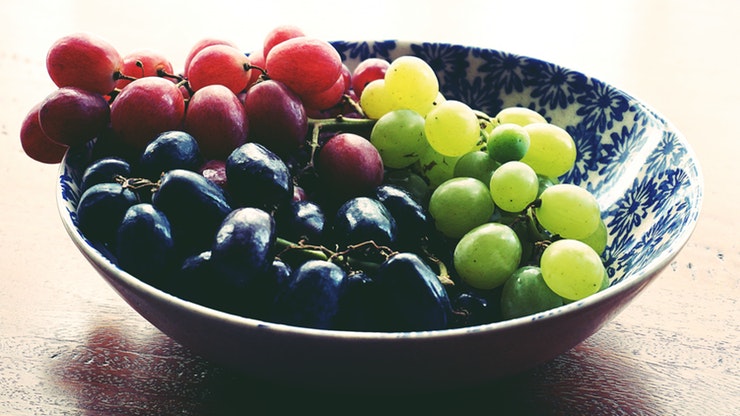
Studies in both animals and humans have found that grapes, or grape seed extracts, are liver friendly foods. The red and purple versions especially contain a variety of healthful elements, the most notable being resveratrol. This is the substance that people use to justify another glass of red wine with dinner. It has been found to lower inflammation, prevent damage, increase antioxidant levels, and improve liver function.
Human studies used grape seed extract rather than whole grapes, so more research is needed. Still, evidence shows that grapes are a great all around choice for liver health.
6. Prickly Pear
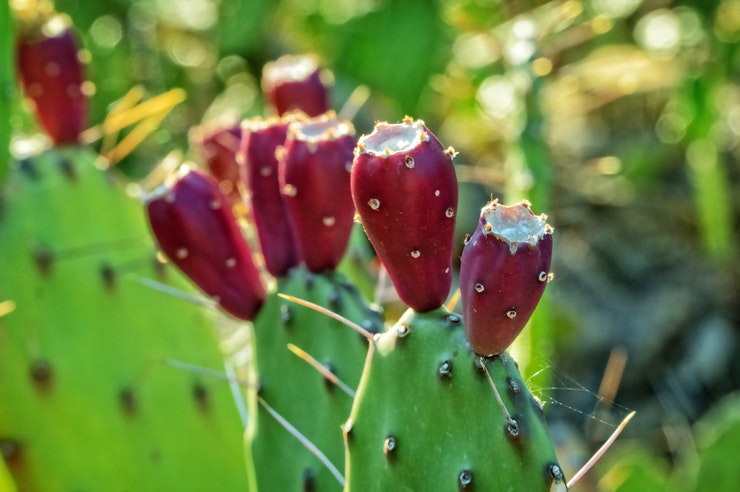
Prickly pear is a type of edible cactus that has been used for a long time in traditional medicine to treat ulcers, wounds, fatigue, and yes – liver disease. A study in 2004 also found that people who consumed prickly pear extract before drinking alcohol were 50% less likely to experience a debilitating hangover the next day.
This is probably because it combats the liver inflammation that tends to occur when we drink. Prickly pear also helps to normalize enzyme and cholesterol levels.
7. Nuts
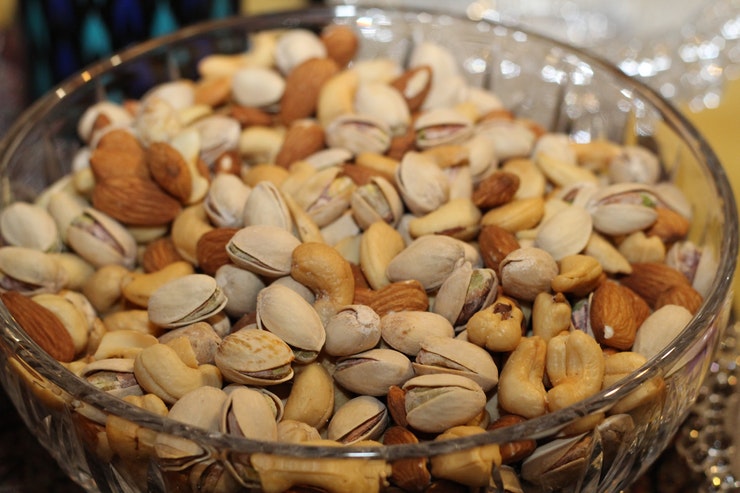
Nuts are full of healthy fats and nutrients such as the antioxidant vitamin E, and have been known for a long time to promote heart health. But the benefits don’t stop there; the liver also benefits.
Studies of people with non-alcoholic fatty liver disease show that eating a good amount of nuts and seeds can improve liver enzyme levels and also reduce the risk of developing NAFLD at all. You want to be careful about the salt content in processed nuts, but a handful of raw, organic nuts is a great snack that can keep you healthier.
8. Olive Oil

Sponsored Links
We know that it’s important to avoid vegetables oils with their heavy doses of unhealthy omega-6 fats, but olive oil contains healthy fat that has a positive effect on the heart, metabolism, and liver. Just one teaspoon a day has been shown to improve liver enzyme and fat levels, raise protein levels, and boost blood flow in the liver. Other studies found olive oil consumption made for improved insulin sensitivity. Switching out vegetable oil for olive oil in your cooking is an easy change to make, but olive oil also tastes great in salad dressings or drizzled on whole wheat bread. Soak some garlic or herbs in the oil for a few days first for a flavor explosion.
Final Word
You’ve got to keep your liver functioning optimally because it is the organ that does most of the body’s dirty work of dealing with toxins. Most of us try to eat healthfully as much as possible, but we all want to splurge a bit sometimes with a couple of cocktails or some greasy comfort food. The good news is that consuming some of the liver-friendly foods in conjunction with a less healthy choice can actually mitigate the negative effects of the splurge. Just make sure to include a few of the items we’ve detailed in your diet each day, paying special attention to consuming more when you know you’ll be indulging in a treat. This strategy can lower your risk of liver disease and cancer, raise antioxidant and detoxification enzyme levels, and protect your liver from damage by harmful toxins.
